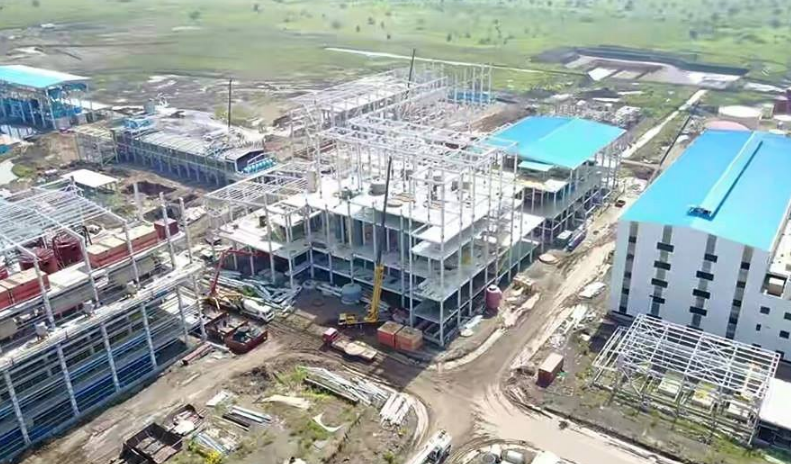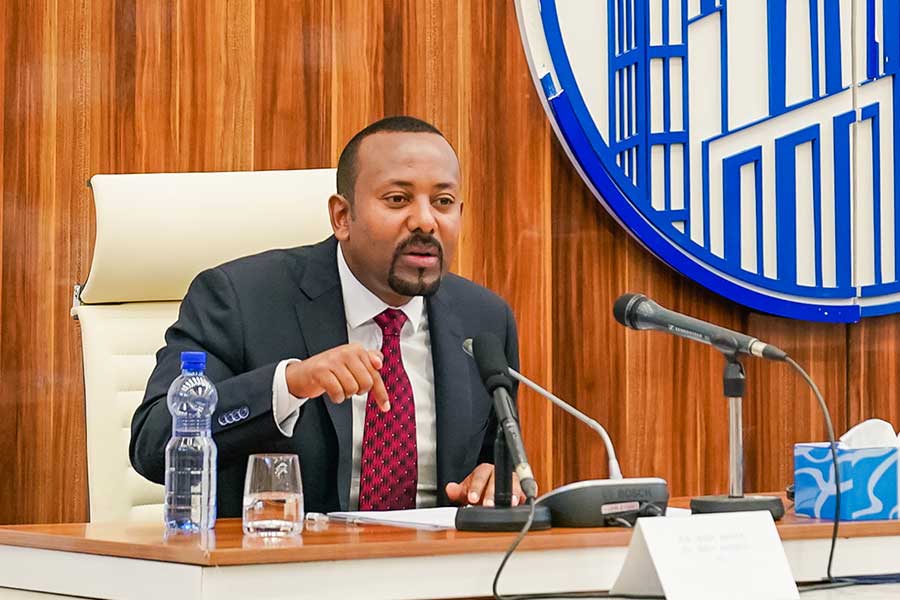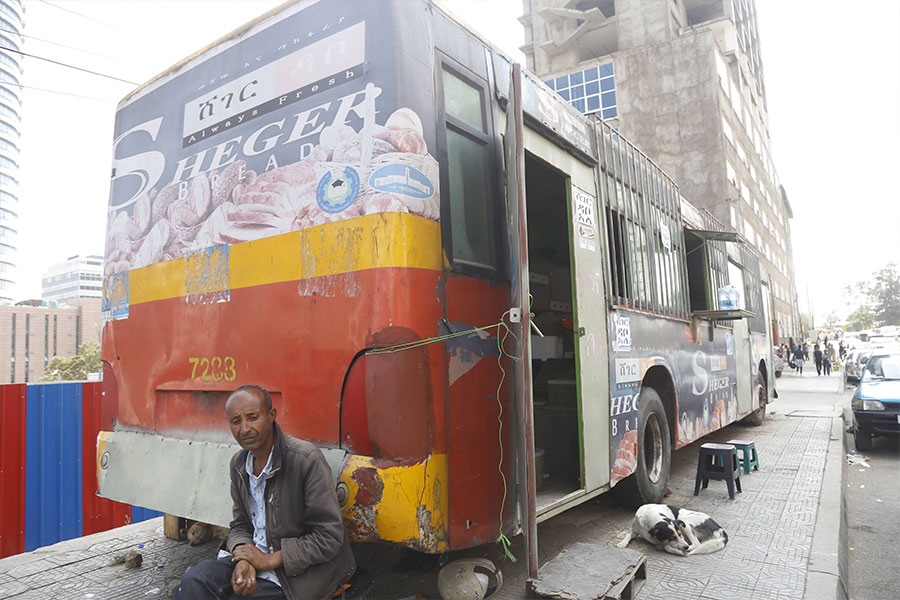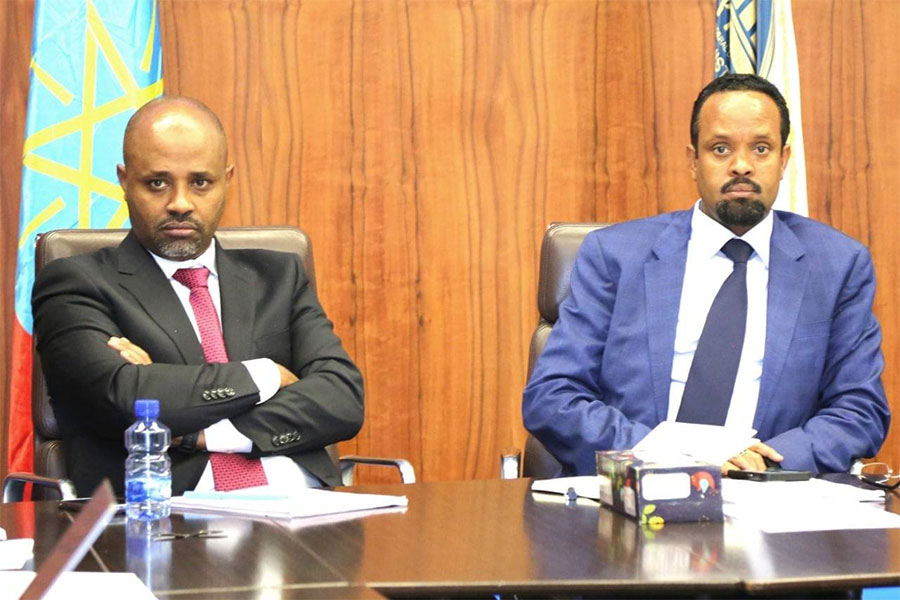
On the verge of losing his job as a sales officer at Ayat (Real Estate) Share Company, Waktola Woldemichael was caught in a desperate search for potential homebuyers. In his late twenties, he could be seen hurrying to and fro in Mesqel Square last week. He gave particular attention to the gates of the newly-opened Addis Diaspora Hall.
In over a year of working for one of the largest real estate companies, Waktola has sold three flats, walking away with 50,000 Br in commission from each sale. It was a gainful effort to the 13,000 Br salary the company pays him. Though he was upbeat about the job when he first started, things have been going downhill recently. He saw the property market in gridlock for the past six months. Waktola did not sell a single property in three months.
This is partly due to a series of government restrictions that have had a tremendous impact on the property market and the construction industry. Central bank authorities ordered commercial banks to freeze all collateral-based loans six months ago. The measure was detrimental to housing and construction, which comprise a combined 21pc of the country's gross domestic product (GDP). According to data from the central bank, the construction industry is a primary recipient of loans, receiving over 28.6 billion Br from commercial banks and 16.4 billion Br from the Development Bank of Ethiopia (DBE) last year alone.
The loan freeze was followed by suspending the transfer of lease rights and title deeds by the Addis Abeba City Administration. The restrictions have been disastrous for the 240 real estate firms operating in the capital, developing a combined 70,000sqm of land. Intermediaries and sales officers like Waktola have not been spared either. However, the past few weeks have brought a glimmer of hope.
Last month, Prime Minister Abiy Ahmed (PhD) called on "a million Ethiopians" abroad to visit for the holidays. Government officials have christened the journey back home "the Great Ethiopian Homecoming."
“The Diaspora homecoming is just in time to help me keep my job,” said Waktola.
A salesperson at Ayat is expected to sell three houses in four months, or at least one flat over the same period. Waktola is sparing no effort to convince returning Ethiopians to buy property, tirelessly chasing down anybody he sees as a potential buyer. His superiors at the real estate company are also keen to capitalise on the new market.
The arrival of the Diaspora has spurred the property market, according to Marta Gebrewold, sales manager at Ayat.
“The Diaspora community has shown interest in the past few weeks,” she said. "Many are signing contracts with the company.”
Nahom Alemayehu, a sales consultant at Gift Real Estate, echoes the same views. He observed members of the Diaspora community buying houses, paying up front rather than in instalments. Nahom sees this reviving the ailing property market.
Leaving the chilly weather in Zurich, Switzerland, behind, Mengistu Gebre, 39, arrived in Ethiopia a few weeks ago. He has been baffled by the persistence he encounters from real estate brokers like Waktola, dogging venues frequented by the Diaspora community.
“It's precarious to get into business with anyone on the streets,” said Mengistu, who has visited Ethiopia three times since he departed as a teenager over two decades ago.
Though Mengistu is considering buying some property in Addis, he prefers to peruse his options through formally organised programmes such as the fourth Ethiopian Real Estate & Home Expo held at the Hilton Hotel earlier this month. Mengistu attended the two-day event, which served as a platform for local and overseas-based real estate developers to showcase their properties to potential buyers.
Over 20 real estate companies, several agents and interior designers participated.
Mengistu also took part in a four-day investment seminar held at the Skylight Hotel last week. The government organised the event, promoting investment opportunities available to the Diaspora community.
The Ethiopian Diaspora Agency, a federal agency established in 2019 and under the auspices of the Ministry of Foreign Affairs, estimates that an average of 4,000 members of the Diaspora have arrived each day since mid-December 2021. As the Timket (Epiphany) holiday approaches, this number can grow even higher in the coming weeks, hopes Wondessen Girma, communications director at the Agency.
This is good news not only for the property market and agents such as Waktola. A range of other industries where business waned over the past couple of years due to the COVID-19 pandemic, armed conflict and political instability are showing a sign of recovery.
It has been a tough couple of years for Tenkir Teni, founder and owner of Totot Traditional Restaurant in the Gerji area. However, the past few weeks had seen his business pick up, inching back to the level he was accustomed to before the COVID-19 pandemic struck. The restaurant is operating at full capacity, accommodating up to 800 diners.
It had to close for nearly four months after the pandemic hit while keeping all 182 employees on the payroll. When the pressure from the pandemic and resulting precautions began to ease, the war in the north followed. The conflict discouraged tourists from coming, which makes up a significant chunk of Totot's customer base.
In business for 14 years, Totot is one of around a dozen traditional restaurants popular dining venues for tourists in the capital. The small number of these establishments have meant that they are used to serving at full capacity, though this has not been the case recently.
"Over the past few weekends, we've even been forced to turn back some of our clients due to a lack of space," Tenkir told Fortune.
With the Diaspora like Mengistu flocking to the capital, Tenkir is worried about capacity. He observes there are not nearly enough traditional restaurants to cater to all the visitors.
The same cannot be said for the hotel industry, whose occupancy rates have been declining over the last two years due to the pandemic and travel restrictions that came with it.
Before 2019, the global hotel industry registered average occupancy rates of around 64pc with a daily average rate of 72 dollars a room, according to the World Travel & Tourism Council. Two years ago, occupancy had plunged to lows of two percent, leading to nearly 90pc of all hotels in Addis Abeba halting operations fully or partially. Over half were forced to close their doors.
Hoteliers in the capital are banking on the Diaspora homecoming to kickstart a return to normalcy. The 176 star-rated hotels in Addis Abeba are receiving the returning Diaspora with special packages, including a 31.8pc discount on rooms. The high expectations have yet to pan out, however.
Aster Solomon, the owner of Mosaic Hotel, which opened its doors in 2015, did not see the occupancy rate improve as expected. Located in the Bole Medhanialem area near Bole International Airport, Mosaic has 78 rooms. Aster also chairs the Addis Abeba Hotel Owners Association, an industry lobby group representing 176 hotels.
“We expect improvement as the Timket holiday approaches,” she said.
Though Aster's expectations match those of the Diaspora Agency, industry insiders warn that any increase in revenues will only serve as a band-aid unless industry players focus on landing tangible investment deals with the Diaspora.
Getachew Asfaw, an economist who had previously served at the former Planning & Development Commission and the Ministry of Finance, observes the diaspora homecoming might provide temporary relief for the hospitality industry.
“However, it won't be a sustainable solution," he said.
According to Getachew, convincing the Diaspora community to invest in the industry on a larger scale is necessary for the Great Ethiopian Homecoming is to have a meaningful and long-term impact on the sluggish economy.
Wondessen from the Diaspora Agency says this is why the government is organising events to attract and engage the Diaspora community in investment endeavours. One such event was held for two days last week at the Hilton Hotel, dubbed “Connecting diaspora and home-based professionals to make a lasting impact”.
Khalid Ahmed, director of the regulatory unit at the Ministry of Innovation & Technology, said the federal government is focusing on building a digital economy led by the private sector.
"The Ministry is developing a communications portal to facilitate the engagement of the Diaspora in the digital sector in a structured manner," he said.
It is too early to judge whether the Great Ethiopian Homecoming has been a success. But, it has brought a semblance of positivity to a country that has been enveloped in gloom in recent years.
Waktola's recent determination and enthusiasm in attempting to close out a sale is a testament to this. He knows his best chance at making a good commission and keeping his job comes with the Diaspora community.
PUBLISHED ON
Jan 15,2022 [ VOL
22 , NO
1133]

Fortune News | Apr 04,2020

Fortune News | Oct 30,2021

Fortune News | Feb 26,2022

Fortune News | Jul 18,2021

Fortune News | Dec 11,2021

Agenda | Dec 19,2021

Obituary | Mar 16,2024

Fortune News | May 14,2022

Radar | Sep 10,2021

Fineline | Oct 03,2020

Dec 22 , 2024 . By TIZITA SHEWAFERAW
Charged with transforming colossal state-owned enterprises into modern and competitiv...

Aug 18 , 2024 . By AKSAH ITALO
Although predictable Yonas Zerihun's job in the ride-hailing service is not immune to...

Jul 28 , 2024 . By TIZITA SHEWAFERAW
Unhabitual, perhaps too many, Samuel Gebreyohannes, 38, used to occasionally enjoy a couple of beers at breakfast. However, he recently swit...

Jul 13 , 2024 . By AKSAH ITALO
Investors who rely on tractors, trucks, and field vehicles for commuting, transporting commodities, and f...

Jun 28 , 2025
Meseret Damtie, the assertive auditor general, has never been shy about naming names...

Jun 21 , 2025
A well-worn adage says, “Budget is not destiny, but it is direction.” Examining t...

Jun 14 , 2025
Yet again, the Horn of Africa is bracing for trouble. A region already frayed by wars...

Jun 7 , 2025
Few promises shine brighter in Addis Abeba than the pledge of a roof for every family...